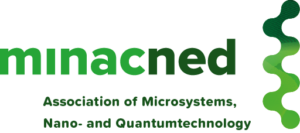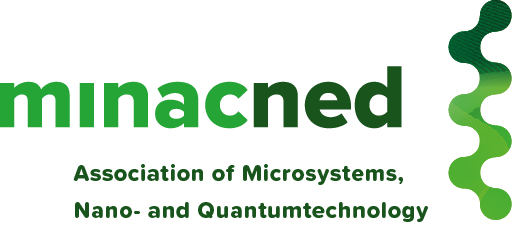Several MedTech initiatives from Twente have been awarded REACT-EU funding. The millions in subsidies will give the relevant companies and researchers in Twente an enormous boost, demonstrate the potential of MedTech in the region and strengthen Kennispark Twente as a MedTech hotspot.
Green light for MedTech Factory
In the MedTech Factory, start-up and fast-growing companies in medical technology will soon have access to high-quality and affordable microbiology labs. They can rent flexible space at the MedTech Factory until they are large enough to have their own building. The concept can be realised by initiators Novel-T and Kennispark Twente with the 3.1 million EFRO subsidy and the contribution already allocated from the RegioDeal via TwenteBoard.
Together with its regional partners, Novel-T recently presented its ambition to give the MedTech cluster in Twente a solid boost in the coming years. In September 2020, Jaap Beernink (CEO of Novel-T) and Eddy van Hijum (member of the Provincial Executive of Overijssel) presented an investment agenda on behalf of the regional cluster to State Secretary Mona Keijzer. On this agenda, affordable lab facilities were high on the priority list.
Anne-Wil Lucas, Area Director of Kennispark: “This grant is fantastic news for the region and Kennispark Twente. Without these subsidies, such facilities would never get off the ground, while they are essential for the continued growth of companies. This will ensure that we can retain Twente’s MedTech companies and attract companies from outside Twente.”
Consortia of knowledge institutes and Twente MedTech companies
In addition to the MedTech Factory, the other REACT-EU awards include various consortia of Twente MedTech companies and the University of Twente. These are collaborations that aim to use medical technology to contribute to an improved and affordable healthcare sector. These projects demonstrate the innovative capacity and power of cooperation within the regional cluster.
Innovations for the treatment of dementia and improved detection of breast cancer
For example, over 1.5 million euros was awarded to the ‘reMIND’ initiative, in which Demcon, Micronit and Locsens are consortium partners. Within reMIND, the parties bring together four different technologies to better treat dementia.
A second consortium, consisting of PA Imaging, Hemabo and the University of Twente in collaboration with Radboud UMC, will receive up to EUR 2.6 million for bringing photo-acoustic mammography to the patient.
A third example is the consortium formed around LioniX International, which includes Bronkhorst High-Tech, SurfiX, Qurin Diagnostics and PHIX. Together they are working on the SensorChip aimed at developing various types of gas, liquid and biosensors. They will receive over EUR 2.5 million for this project.
Finally, the Enschede-based company ILT Fineworks is involved in the industrialisation of the ELENA Heart Technology, for which a maximum of 1.7 million euros has been granted.
Jaap Beernink, CEO of Novel-T: “The award of these REACT-EU grants for both specific innovation projects and for strengthening the facilities in the ecosystem are of great importance for the development of the rapidly growing MedTech cluster in Twente. Innovative growth companies are the driving force behind this. For the region, the impact of these companies is particularly large, both from a social and economic perspective.”
About MedTechTwente
MedTech Twente is the innovation hub where medical technology is accelerating. For the past 15 years, the business community and healthcare institutions have been working closely together with researchers from the knowledge institutions to develop innovations for tomorrow’s healthcare. Innovations are developed, validated and implemented in close cooperation between parties, facilitated and accelerated by supporting organisations such as Novel-T, OostNL, VitaalTwente, HIP, WTC and HealthValley. It is therefore not without reason that successful MedTech companies such as Demcon, Medspray, Micronit, Lipocoat and IAMFluidics were founded and have grown in Twente.
About REACT-EU
The European Union is working with its recovery programme EU Next Generation on a fast, green, digital and resilient recovery of the regional economy. Under the name REACT-EU, 47.5 million euros – of which 5.9 million euros government co-financing – has been made available for the East Netherlands in 2021. This amount will be awarded to projects that have successfully submitted an application by 1 April. These projects must be completed by the end of 2023 so that the regional economy can recover as quickly as possible. The extra money has therefore been made available through the existing EFRO programme OP East 2014-2020. In OP Oost, the provinces of Gelderland and Overijssel work together to stimulate smart, sustainable and future-oriented projects at companies in the East Netherlands.
Source news: Kennispark Twente

